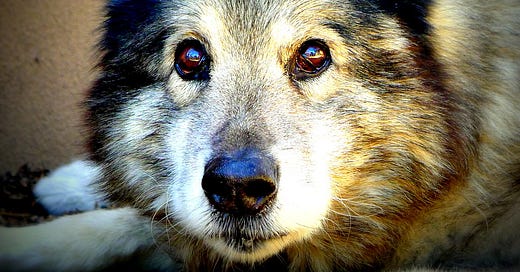Every family has stories. Hard stories, joyful or triumphant stories, silly stories, shards of story, unspoken stories, stories that change depending on the speaker. And even stories about the smallest things tell us about our roots, and give us something to carry forward.
Every year around Thanksgiving, I ask my students to talk to a relative and learn a story. Then we bring the stories in and share them. I love this project. I love hearing about my students’ families, and I love having the excuse to learn more about my own, to call up my grandpa who can’t hear me very well but is full of stories once I get him talking. This year, even though you may not see many relatives in person, a family oral history project could help your kids connect with their larger family.
I usually urge my kids to talk to someone they don’t always get to talk to. It’s an excuse to call up a distant great aunt, or video chat with relatives in another country, or just have a conversation with a grandparent. Of course, parents have stories to share too, so if them talking to you is what works in your family, that’s always an option.
I usually send everyone out with a specific prompt, though it’s just a starting place. We usually think up some follow-up questions, as some relatives take a little nudging to tell a good story. This year, we’re asking about historical events our relatives have lived through, since we’re all living through one right now. We’ll ask: where were you when you learned about the event? What do you remember? How did you feel? What did you do? What did other people around you do? How did things change?
Some other ideas:
Talk to the oldest relative you can and ask them to tell you about the oldest relative they met.
Ask a relative about what it was like when they were kids. What games did they play? Where did they live? Who were their friends? What is different than now?
Ask a relative for a story about food. What did you eat when you were a kid? Anything you used to eat you don’t eat now? Foods you hated/loved? Foods that remind you of someone? What were holiday meals like? Any memorable meals?
Ask a relative about how your family came here. (Here could be your country, or your state/city.) When and why did your family come here? Where did they come from? What was the journey like?
Ask how a relative met their partner. Maybe particularly fun if you’re talking to a direct ancestor.
We’ve had stories about families driving across Washington State with eight kids in the car and a dog on the dashboard, stories about relatives who were buffalo exterminators. Many people’s relatives hate peas. We’ve had stories of people emigrating on ships and on planes, stories of pluck and of disaster. I learned about my great-great-grandfather who as a boy in the 1860’s watched a bunch of men in blue race by on horseback, then a bunch of men in gray. And I learned a little song he used to sing to my grandfather: when I go into town, don’t you kick my dog around. It’s just a fragment, but that song really sums up a lot to me. It’s not the broad strokes of history — the wars and dates and presidents — but it’s a taste, like a tiny pinch of a particular spice, that gives me the flavor of my family and helps me understand history not as a list of dates, but as a soup of human experience.




